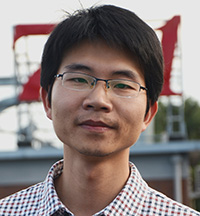Rodgrigo Duterte will become the 16th President of the Philippine Republic based on the results of the national election held on May 9th.

For more than twenty years, Duterte served as an effective mayor of Davao City, previously known as the hotbed of communist insurgency and the epicenter of criminality in Mindanao, particularly for crimes like kidnap-for-ransom and illicit drug trade. Today, Davao City is one of the safest cities in the Philippines with a growing local economy. In fact, Davao City is currently the richest city in the Philippines outside of the metro Manila area.
As a local manager, Duterte received the excellent reputation as a champion mayor. He pursued many innovations in local governance that made Davao City the commercial and trading hub of Mindanao, a very rich island in terms of labor force and natural resources, particularly minerals like gold, iron ore, manganese, and even uranium.
Duterte takes the helm of the Philippine Republic as the first Philippine president coming from Mindanao. Though he was born in Southern Leyte of the Visayan island, he spent most of his childhood and political life in Davao City. As a local chief executive, Duterte had much exemplary practice in local governance.
But can Duterte perform in foreign policy?
As an incoming president, Duterte’s major foreign policy challenge is arguably the enhancement of Philippine defense relations with the United States and the improvement of the country’s political ties with China.
Duterte needs to ally the fear in Washington DC that his presidency will lead to the cooling of Philippine-American relations, considering his nasty remarks against the U.S. during the presidential campaigns. Having been associated with personalities in the Philippine communist movement, Duterte displayed a critical and lukewarm attitude towards the United States.
Because of the Philippine Supreme Court’s decision declaring the constitutionality of the Enhanced Defense Cooperation Agreement (EDCA), Duterte commits to inevitably implement EDCA. But he asserts that he would closely monitor how the agreement should be implemented in accordance with Philippine national interests.
Apparently, the Duterte presidency is departing from the excessive pro-Americanism of his predecessor, President Benigno Simeon Aquino III. This departure is now causing uneasiness in the U.S. State Department and Pentagon. The changing of guards in the U.S., which will also have its own presidential election in November 2016, provides another source of uncertainties in the current trends and future direction Philippine-American relations.
While Duterte seriously values the Philippines’ long-standing security alliance with the U.S., he seems to be more enthusiastic in repairing the Philippines’ damaged political ties with China. In his many public statements during the campaigns, and in the aftermath of the recently concluded elections, Duterte vows to resume bilateral talks with China even if he reiterates his strong position to defend Philippine territories in the Spratlys at all cost.
But Duterte prefers the exploration of many peaceful options to address the South China Sea disputes. To peacefully manage Philippine disputes with China in the South China Sea, Duterte openly declares his preference to promote joint development. Though Duterte still needs to clarify the details of his idea of joint development, he seems to be following the Deng Xiaoping’s formula of shelving territorial disputes for purposes of joint cooperation.
When asked by reporters again on the South China Sea disputes with China after the elections, Duterte underscores, “I would say to China, do not claim anything here — and I will not insist also that it is ours.” Again, this is a drastic departure from his predecessor who enunciated a hard line South China Sea policy, “What is ours is ours.”
From the foreign policy of balancing, the incoming Duterte presidency seems to be leaning more towards the foreign policy of hedging bets, by accommodating China. Though the Permanent Court of Arbitration (PCA) at the Hague will soon announce its decision on the Philippine case against China, Duterte seems to be more interested in pursuing the policy of accommodation with China than forcing the issue of international arbitration, which Duterte himself respects.
The Duterte presidency, however, must be wary of the effect of excessive accommodation of China just to get investments, improve trade, boost tourism, and revive development assistance. Excessive accommodation of China can lead to the bandwagon effect that could potentially undermine the Philippines’ long standing alliance with the United States.
Duterte’s presidency must stick to the foreign policy of hedging by continuously enhancing its defense alliance with the U.S. while resolutely improving its political ties with China. In this case, the Philippine can pragmatically advance its national interests by getting the best of both worlds.
Indeed, the Philippines needs to improve its ties with its close neighbor, China. But it still needs the warm embrace of its distant relative, the United States.


